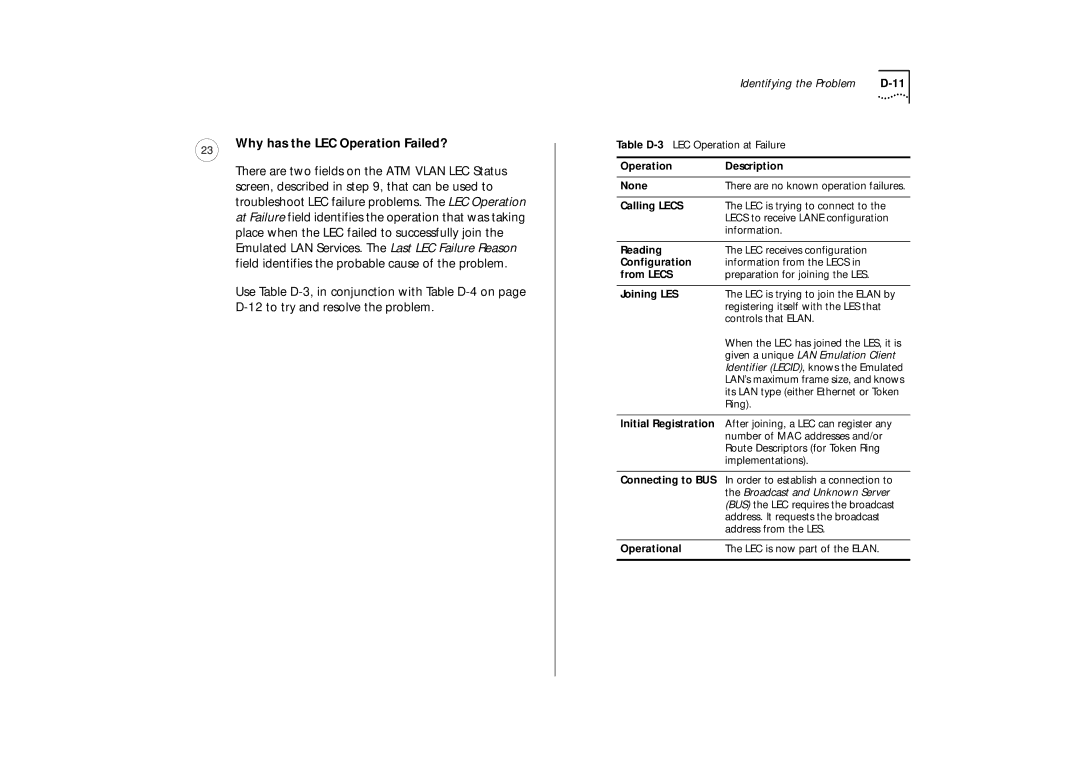
Why has the LEC Operation Failed?
There are two fields on the ATM VLAN LEC Status screen, described in step 9, that can be used to troubleshoot LEC failure problems. The LEC Operation at Failure field identifies the operation that was taking place when the LEC failed to successfully join the Emulated LAN Services. The Last LEC Failure Reason field identifies the probable cause of the problem.
Use Table
Identifying the Problem |
Table
Operation | Description |
|
|
None | There are no known operation failures. |
|
|
Calling LECS | The LEC is trying to connect to the |
| LECS to receive LANE configuration |
| information. |
|
|
Reading | The LEC receives configuration |
Configuration | information from the LECS in |
from LECS | preparation for joining the LES. |
|
|
Joining LES | The LEC is trying to join the ELAN by |
| registering itself with the LES that |
| controls that ELAN. |
| When the LEC has joined the LES, it is |
| given a unique LAN Emulation Client |
| Identifier (LECID), knows the Emulated |
| LAN’s maximum frame size, and knows |
| its LAN type (either Ethernet or Token |
| Ring). |
|
|
Initial Registration | After joining, a LEC can register any |
| number of MAC addresses and/or |
| Route Descriptors (for Token Ring |
| implementations). |
|
|
Connecting to BUS | In order to establish a connection to |
| the Broadcast and Unknown Server |
| (BUS) the LEC requires the broadcast |
| address. It requests the broadcast |
| address from the LES. |
|
|
Operational | The LEC is now part of the ELAN. |
|
|
